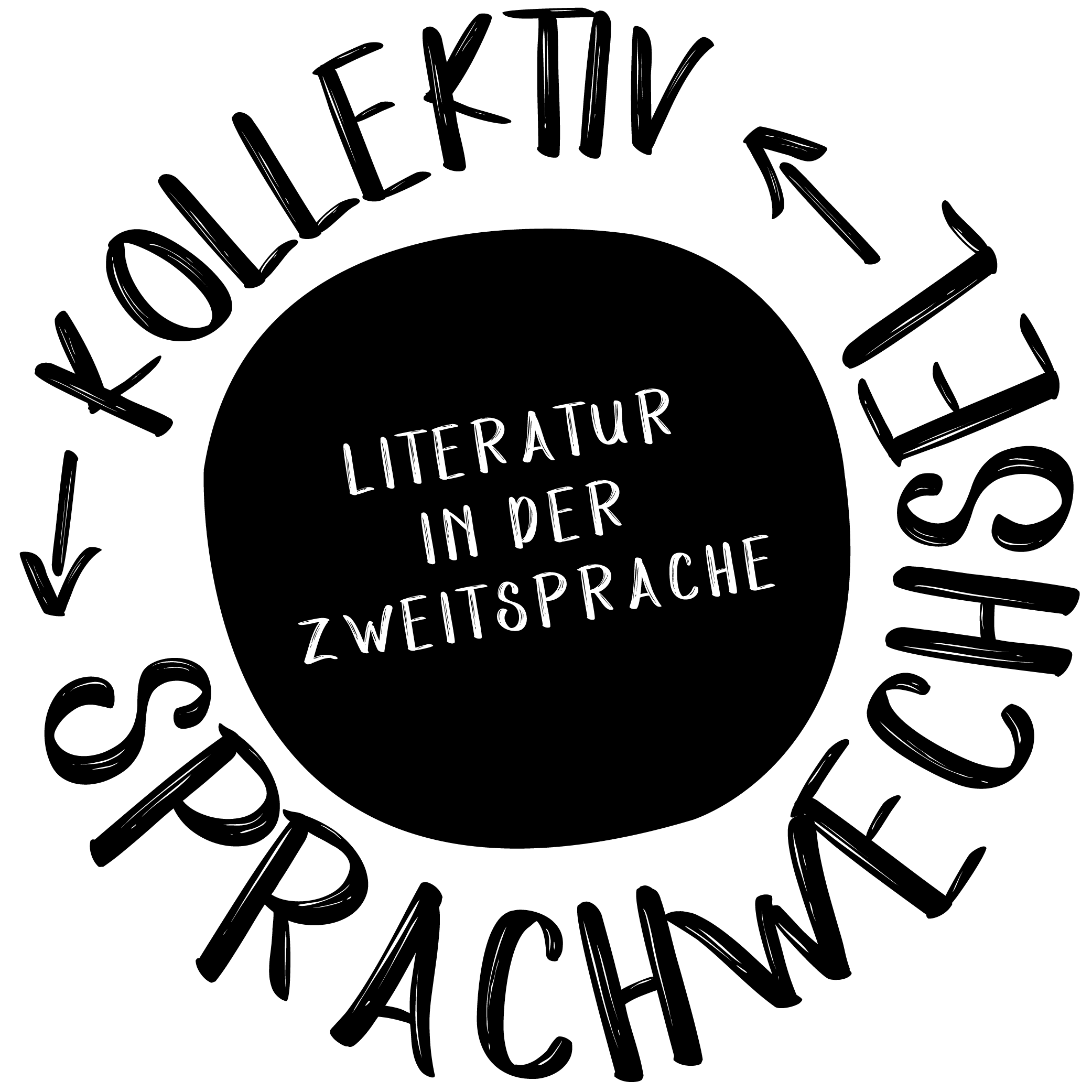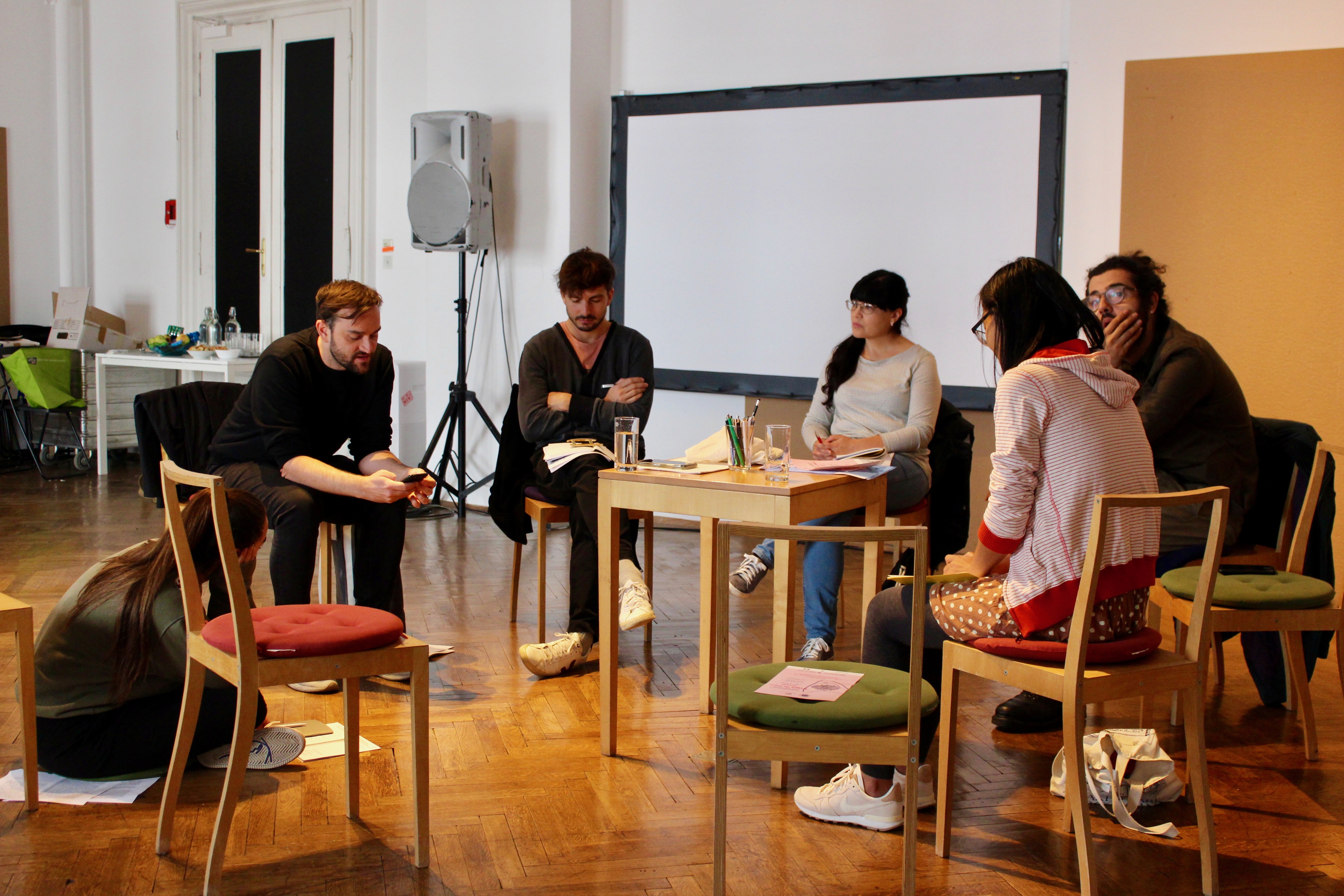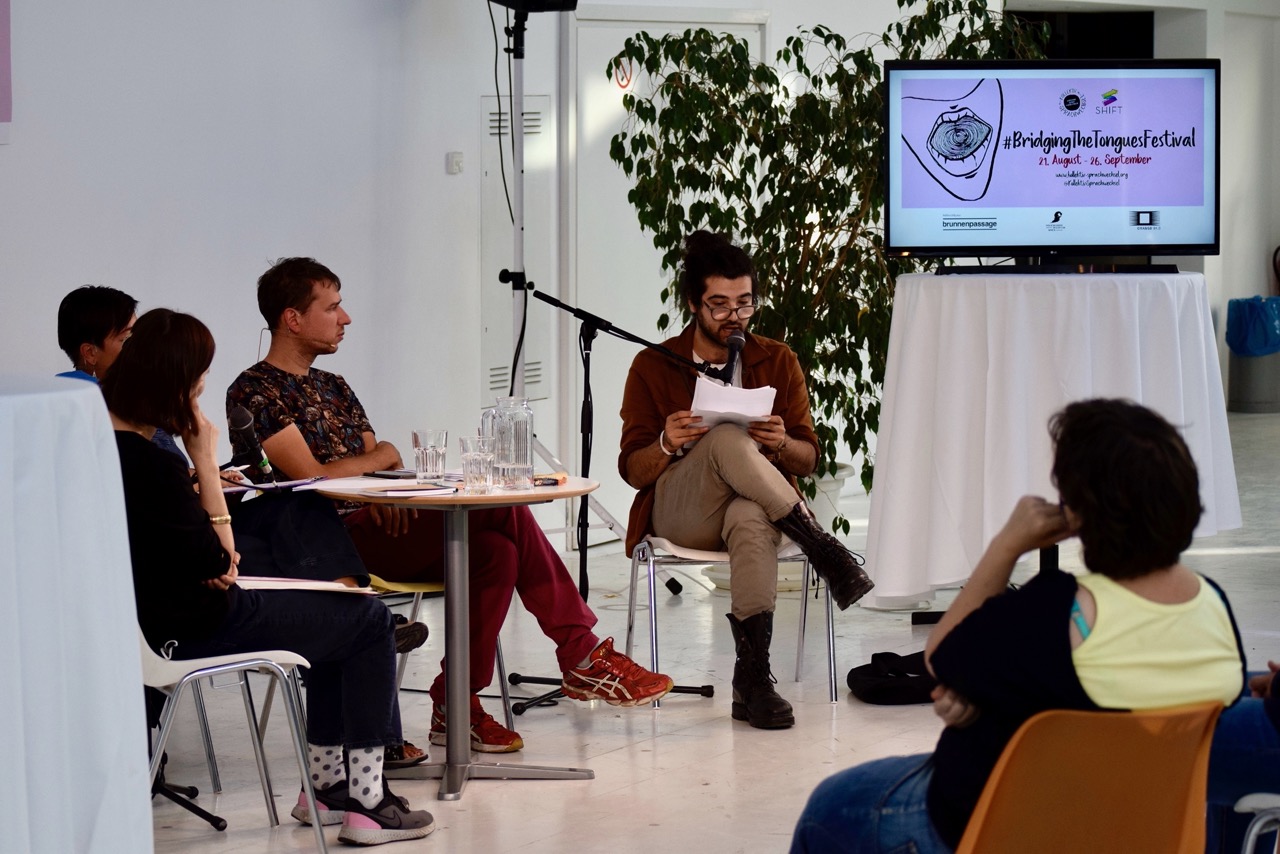Published November 8th, 2021
Interview
by Filippo Bagnasco
In this interview, conducted in written form, I had the pleasure to talk to Ovid Pop and Laura M. Pana from the kollektiv sprachwechsel (engl.: collective language change). The kollektiv is an organization based in Vienna, Austria, dedicated to the support and promotion of second language writers. Organizing discussions, festivals and workshops, the kollektiv has established itself as a bright star in the universe of second language writing and transnational life, with even more ambitious plans for the future.
Let's start with a bit of history. When was the kollektiv created and by whom? What motivated its creation?
The kollektiv was created in late 2016, if our memory doesn’t play tricks on us. It was brought into being by Radostina Patulova and myself (editorial note: Ovid Pop) after a reading we had together in Vienna. It came out of a necessity to organize in order to write and, specifically, to write without the overseeing look of a monolingual editor. It may sound like a very peculiar need, but it is a need many speech enthusiasts who live with more than one language relate to.

The development of the kollektiv confirmed our first impetus. People came and shared their eagerness to express themselves in writing, gradually forgetting all the nonsense about the constraints of the German language. Our first goal was to get rid of that monolingual terror, the fear that there was only one way of writing in second languages, that was "proper,” as if there were only one German — public, correct, impregnable. Kollektiv sprachwechsel grew out of the joy of dropping anchor in the Zweitsprachigkeit (engl.: second language mode) — and over the years we have had more than 20 people joining the activities of the kollektiv — acknowledging the literary bounty one can find when sitting quer across the language(s).
At first, German was the literary language that brought us together, but in time we opened up to English as a second language, since many members in the kollektiv are active in both these languages, beside their mother tongues. Since we started our activity, we have organized many workshops and public readings on the topic of writing in second languages, mostly in Vienna, but also some events abroad.
You describe the kollektiv as a “platform” to bring together authors who write in a second language, mostly German and English. What is a platform to you and why did you decide to adopt this format for your project?
Our idea of a common platform, a kollektiv of authors who write in a second language without having necessarily being socialized in it, is understood as a space of visibility for these diverse literary and multilingual voices in the city. It is also an opportunity to come together and exchange ideas. Most importantly, our kollektiv encourages the authors to experiment beyond linguistic norms and pressures and turn the supposed disadvantages of the second language into literary advantages. It has been equally important for us to initiate reflections as well as conversations about the role of literary fiction in the age of global migration when we are in constant movement, whether freely or by force.
The reason for adopting this format is that a great number of writers who are based in Vienna or in the German-speaking region work in literary languages other than German or write in multiple languages, German included. Their works address local and transnational audiences who mirror the multilingual character of the city they live in. Often, there are not enough literary formats to reflect the current and rich development of multilingualism.
It is for the exact same reason that we embarked on an extraordinary journey earlier this year. Bridging the Tongues Literary Festival is our latest project, the biggest we have done so far, and a unique event in the literary scene in Vienna. Between August 21 and September 26, 2021 we proposed to audiences in Vienna and online a variety of literary formats to discuss multilingual literature and storytelling: from workshops to discussions, from discursive lines and literary walks to radio formats. We brought together international and Vienna based authors (Sulaiman Addonia, María Cecilia Barbetta, Xoșewîst, Barbi Markovic, Loulou Omer, Canan Marasligil to name just a few) as well as multilingual speech enthusiasts who were eager to experiment with the vibrant languages of the city.

This literary festival came as a natural expansion of our public discussions, readings and texts for a wider audience in Vienna and beyond. We have reached audiences in 45 countries spread over 5 continents: Europe, the Americas, Asia, Africa and Oceania. From Argentina, Brazil and Mexico to the United States all the way through Austria, Germany, Netherlands, Romania, Ireland, Belgium, France, Italy, Japan, Russia, Turkey, Iraq, China, Singapore and New Zealand, just to name a few. We have received positive feedback and new proposals for collaborations. Also, more authors would like to join our kollektiv, which honors us and confirms the importance of bringing forward more and more diverse literary formats.
With Bridging the Tongues Festival we provided a framework for international and local authors to discuss their work outside the pressures of the monolingual literary canon and for readers to discover and (re)connect with exciting developments of the literary texts that reflect both the local and the transnational character of the movements that currently take place in the multilingual European literary scene. In other words, we have been bridging. For those who are interested, it is possible to rewatch our festival online at www.kollektiv-sprachwechsel.org/digital-premiere.
In your blog, using a second language to express oneself in literary form is described as “a free choice, an act of emancipation or rebellion.” What advantages do you see in expressing oneself in a second language, based on your experiences with the different workshops you organized?
We think that for a multilingual writer who is in movement, expressing oneself in a second language — or more languages as it’s often the case — is foremost a need. It is an urge that comes from deeply within as a result of the transformation one has undergone when coming in contact with other cultures and languages.

We have a complex relationship with the languages we speak that are not our mother tongues, especially when we live in different cultural and linguistic contexts than the ones we were born in. We are possessed by language(s) and obsessed with it. Language(s) become(s) an important part of our being. For some authors we have been collaborating with, all the languages they knew were forbidden to their creativity in certain contexts. They were being told over and over again about how they shouldn’t even dare to write in a language that is not their mother tongue. It is a long and painful process to liberate yourself from such a thing. You start to question standards, norms and agency, and you start to see languages not as something you need to master — who can measure that anyway? — but as something that you constantly feel, as it’s the case for many authors who participated in our literary workshops.
This constant urge to work creatively in this way, to play and experiment with languages, to allow yourself to tap into the imaginary of the languages you speak broadens the possibilities and the perspectives; it changes you and it definitely changes the way you see the world. We think it brings honesty as well, because this type of literature reflects a reality in which multilingualism plays a central role, which is the reality of many of us living in the globalized culture. It is an honest response to the imposition of monolingual literature. And the readers can only benefit from it.
What kind of people participate at the workshops, or generally engage with the kollektiv? Do they conform to a particular type, or do you notice a lot of variety?
Our overarching criteria is that people are not socialized in German or English. So you need to have come in contact with these languages after graduating from school. That is why we don’t take in second generation writers, who by default grew up with, for example, German, if we are to take Vienna as a point of reference. In our view, second generation writers have a specific approach to language which differs from ours. It goes without saying that both strategies of “coming to terms” with the language of the majority are legitimate. Literature benefits from both. But second lingualism, due to its apparent frailty, stands closer to literary experiment and avant-garde, at least in theory.
Also, life trajectories and, sometimes, life conditions, may differ a lot between second language writers and second generation writers. In the case of the kollektiv, all of us — at least, until now — are Global South citizens, with “background” languages (and passports) stretching from Latin America to Central Asia. Eastern Europe is well represented in the kollektiv, too, with some of the most active members coming from this region. Beyond all criteria, the kollektiv accommodates diverse literary outlooks and writing fashions.

In this sense, we are not a classic group gathered around a shared esthetic view; there is no literary current underlying the activities of the kollektiv. This ideological openness gives us the possibility to engage with texts which diverge from the general understanding of what literature is or does, which is very important for a group such as ours, where people come from different parts of the globe and relate or allude to complex literary genealogies. Last but not least, the people participating in the kollektiv share the belief that writing is a collective practice, which requires as much engagement with other people and sharing and a certain safe vulnerability, as it calls for individual concentration and creative reclusion.
What are some future plans for the kollektiv, if you want to share them, and how can people get involved with it?
At the moment we are preparing a series of discursive and creative workshops with poets who write in English as a second language. The public reading is going to take place in December 2021 and is going to be accessible online on our website www.kollektiv-sprachwechsel.org.
After the great experience in organizing the multilingual festival Bridging the Tongues this year, we are also thinking of continuing with this format and maybe expanding it in order to make it accessible for a broader audience who does not necessarily speak German. But how and when exactly this is going to take place is still written in the stars. Beside these outward looking plans, there is also the need in the group to focus more on writing and resume the monthly meetings, which the pandemics brought to a halt for a while.
Nationality: Italian
First Language(s): Italian
Second Language(s):
English,
German,
French
Supported by:

